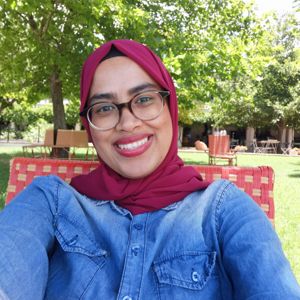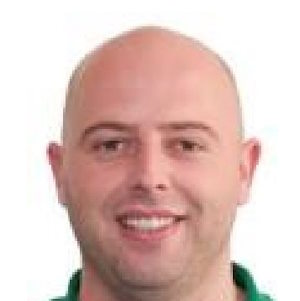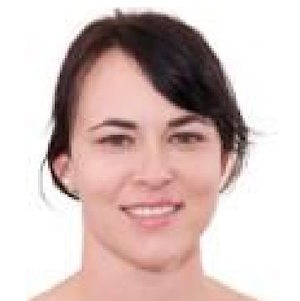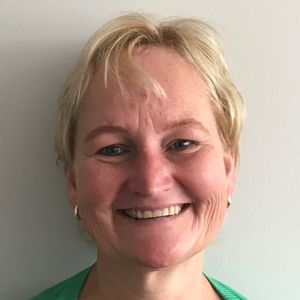As staff, we are dedicated to fostering an atmosphere where genetics, as a foundational science, propels the innovative growth of individuals. Our goal is not just to benefit individuals but also to make a positive impact on society and the environment. As we strive to position Genetics as a pivotal discipline within biological sciences at the University of Stellenbosch, our commitment remains to produce exceptional research, inspire through innovative teaching, and provide unparalleled and responsible service to our community and the world around us.
MEET OUR
ACADEMIC STAFF
HEAD OF DEPARTMENT AND DIRECTOR
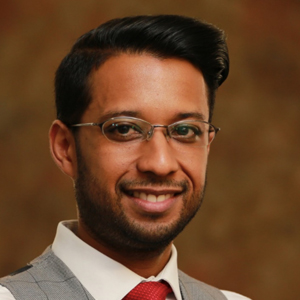
Prof. Clint Rhode
HEAD OF DEPARTMENT
Laboratory: Animal Production and Improvement
Email: clintr@sun.ac.za
Short Bio
Prof. Clint Rhode

B.Sc.Hons., M.Sc., Ph.D. (Genet.), M.S.A.G.S. (Ord.), Pr.Sci.Nat. (Biol. Sci.) (SACNASP reg. no. 400139/15)
Designation: Associate Professor
Research Theme(s)- Animal Genetic Management and Improvement & Biodiversity Conservation
Laboratory: Animal Production and Improvement
Disciplinary Speciality: Population & Quantitative Genetics
NRF Rating: C1 – Established RESEARCHER with considerable international recognition and standing
Teaching Modules: Genetics 354 (Quantitative Genetics); Genetics 713 (Genetic data Analysis)
Email: clintr@sun.ac.za
Short bio
Professor Rhode holds a doctorate in genetics, is registered as a professional natural scientist and is currently the President of the South African Genetics Society. He has a primary research interest in understanding how various micro-evolutionary forces influence genomic diversity in animal populations, and how this in turn facilitates phenotypic development. His work finds application in the genetic management and breeding of domestic and wild animals, and he currently leads projects with a specific focus on aquaculture and vermiculture for sustainable animal production systems and conservation of marine living resources.
Close
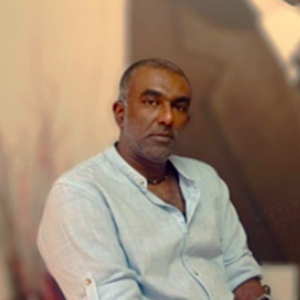
Dr. Shaun Peters
Laboratory: IPBB
Email: swpeters@sun.ac.za
Short Bio
Dr. Shaun Peters

B.Sc. (University of Cape Town), Pg. Dip. Organisation & Management (University of Cape Town) B.Sc. Hons. (University of Cape Town), M.Sc. (University of Cape Town), Ph.D. (University of Zurich), HELM Foundations of Leadership I & II (The Helm Foundation, Department of Higher Education & Training)
Laboratory: IPBB
Research Environment - Carbohydrate Molecular Physiology
Teaching Courses: Genetics 345: Biotechnology, Entrepreneurship, Business & Innovation, Genetics 716: Genomics
Email: swpeters@sun.ac.za
Short bio
Shaun, a Swiss-qualified PhD in molecular plant physiology, joined Stellenbosch University in 2011. He is passionate about innovative thinking, science communication, and observing the natural world. Shaun engages in strategic leadership, having earned a post-graduate diploma in organization and management from the University of Cape Town and completed the HELM Foundations of Leadership program. He is committed to historical redress and diversity at Stellenbosch University, actively participating in transformation dialogues. Shaun mentors students and new staff, fostering leadership and inclusivity. His contributions extend to strategic committees within the university and national platforms like the National Research Foundation.
Close

Mr. Willem Botes
Laboratory: Plant Breeding, IPBB
Email: wcb@sun.ac.za
Short Bio
Mr. Willem Botes

M.Sc. Agric, B.Sc.Agric
Research Environment - Plant Breeding
Laboratory: Plant Breeding
Teaching Courses: Biometry 212, Biometry 242, Genetics 722
Email: wcb@sun.ac.za
Short bio
Willem Botes, the current Head of the Department of Genetics, is a small grain breeder who has taught plant breeding, quantitative genetics and biometry at both undergraduate and postgraduate level. He has been the head of the Stellenbosch University Plant Breeding Laboratory (SU-PBL) since 2008 and has obtained plant breeder’s rights to several successful commercial rye and triticale cultivars. Under his guidance, SU-PBL have also released numerous wheat rust resistance nurseries to commercial and public wheat breeding programmes, consisting of advanced breeding lines that can be used for local crop improvement. He has served as the chair of the Southern African Plant Breeders Association, is an member of the International Triticale Association and actively participates on various advisory boards as a plant breeder.
Close
FULL PROFESSORS
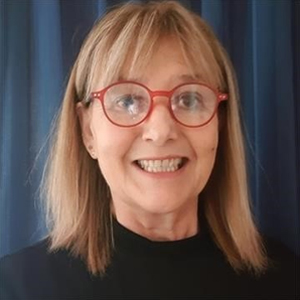
Prof. Anna-Maria Botha-Oberholster
Laboratory: Cereal Genomics
Email: ambo@sun.ac.za
Short Bio
Prof. Anna-Maria Botha-Oberholster

BSc, BSc Hons, MSc, PhD
Research Environment - Cereal and arthropod Genomics
Laboratory: Cereal Genomics
Teaching Courses: Gen314: Genomes and Genome analysis
Email: ambo@sun.ac.za
Short bio
Dr Anna-Maria Botha is a renowned expert in field of host plant-aphid interactions. She is the recipient of several awards including the Gold Medal of the South African Genetics Society, with research outputs that exceed 200 (i.e., peer-reviewed papers, patents and genomic resources). Over the years, her research team provided an improved understanding of the Russian wheat aphid genome regarding its structure and function; including insight into the mechanisms underpinning how aphid genes are regulated to enable the acquisition of virulence against its host within a noticeably short evolutionary time while reproducing only parthenogenetically. The group also addresses the need of African farmers through the development of drought tolerant EMS mutant lines.
Close

Prof. Johan Burger
Laboratory: Vitis
Email: jtb@sun.ac.za
Short Bio
Prof. Johan Burger

PhD (Microbiology, UCT)
Laboratory: Vitis
Research Environment - Plant Virology; Plant Molecular Biology
Teaching Courses: Molecular Genetics (Gen 244; Gen 344)
Email: jtb@sun.ac.za
Short bio
Johan Burger is a Professor in the Genetics Department at Stellenbosch University where he teaches molecular genetics at undergraduate level. His research team comprises of several postgraduate students, post-doctoral fellows and a senior researcher. Current research is focused on the molecular characterisation of plant-pathogen interactions, and his research group is internationally recognised for their work on the aetiology of virus and virus-like diseases of grapevine and fruit crops, genome sequencing of grapevine cultivars, and lately, the application of genome editing technologies to introduce tolerance to abiotic and biotic stresses in a number of food and fruit crops. Several of these research projects are in collaboration with international consortiums.
Close

Prof Zander Myburg
Laboratory: Forest Genomics
Email: zandermyburg@sun.ac.za
Short Bio
Prof Zander Myburg

PhD in Genetics and Forestry from North Carolina State University.
Laboratory: Forest Genomics
Research Environment - Plant Genetics and Geonomics
Email: zandermyburg@sun.ac.za
Short bio
Zander Myburgis a Professor in the Genetics Department at Stellenbosch University. His research focuses on the genetics of growth and development in forest trees. He has pioneered the use of population genomics and systems genetics approaches to unravel the genetic control of growth and wood formation in Eucalyptus trees.He was the lead investigator of the US Department of Energy - Joint Genome Institute (DOE-JGI) Eucalyptus Genome Project which generated the reference sequence for the genus (Myburg et al. 2014, Nature). Presently, he is leading a new DOE-JGI project (2022-2026) for large-scale sequencing of ~3700 eucalypt genomes including a landscape genomics effort for Eucalyptus grandis. He is also leading an effort to sequence the genomes of tropical pine trees (P. patula x P. tecunumannii). Prof Myburg received the prestigious A1 rating from the National Research Foundation in 2024.After completing a PhD study at North Carolina State University, he joined the University of Pretoria in 2001 where he established and directed the Forest Molecular Genetics (FMG) Programme in the Forestry and Agricultural Biotechnology Institute (FABI) from 2002 to 2024. He joined Stellenbosch University from 1 September 2024.
Close

Emeritus Prof. Louise Warnich
Laboratory: Human and Systems Genetics
Email: lw@sun.ac.za
Short Bio
Emeritus Prof. Louise Warnich

BSc, BSc Hons (Human Genetics), MSc (Medical Sciences), PhD (Human Genetics)
Laboratory: Human and Systems Genetics
Email: lw@sun.ac.za
Short bio
Louise Warnich is a professor in Genetics and the former dean of the Faculty of Science at Stellenbosch University from 2014 to 2024. Louise’s most recent research interests focused on genetic variation in pharmacogenes in South African populations and the application of pharmacogenomics and other platforms to optimise therapies in schizophrenia and HIV/AIDS. Her research resulted in a number of scientific publications and she supervised/co-supervised more than 40 MSc and PhD students. Currently she manages two institutional projects: one on departmental leadership and the other on rethinking of practicals in biological sciences..
Close
ASSOCIATED PROFESSOR

Prof. Aletta Bester-van der Merwe
Laboratory: Shark and Ray Genetics
Email: aeb@sun.ac.za
Short Bio
Prof. Aletta Bester-van der Merwe

B.Sc., (cum laude) MSc Agric (cum laude), PhD Agric
Research Environment - Molecular Breeding and Biodiversity Research Group
Laboratory: Shark and Ray Genetics
Teaching Courses: Genetics 324, Genetics 711
Email: aeb@sun.ac.za
Short bio
Prof Bester-van der Merwe has disciplinary expertise in molecular population- and evolutionary genetics with applications in the management and conservation of commercially important and exploited marine species. Her research focus is marine genomics while at the same time applying population genetics over a broad range of organisms including plant pathogens, plants, insects, and livestock animals through a wide network of partnerships with governmental organizations, NGOs, and academics. She is furthermore actively involved in wildlife forensics and associated law enforcement.
Close
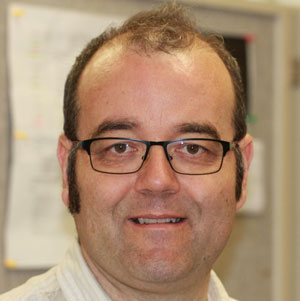
Prof. James Lloyd
Laboratory: Lloyd Group
Email: Lloyd@sun.ac.za
Short Bio
Prof. James Lloyd

PhD (University of East Anglia)
Research Environment - Institute for Plant Biotechnology
Laboratory: Lloyd Group
Teaching Courses: GEN 215, GEN 245, GEN 713
Email: Lloyd@sun.ac.za
Short bio
Before starting in Stellenbosch in 2004, Prof. Lloyd worked in some of the world’s largest plant science institutes (John Innes Centre (UK), Max Planck Institute for Plant Molecular Physiology (Germany) and Risø Nationjal Laboratory (Denmark). He is an expert in plant carbohydrate metabolism especially concerning starch. This compound influences plant growth, is an important feedstock in some industrial processes and is the major source of calories in the human diet. His work is aimed at making plants grow better, be healthier to eat and be more useful to industry. His group uses modern biotechnological techniques - such as genome editing - to accomplish this, mainly working with potato and cannabis.
Close

Prof. Clint Rhode
HEAD OF DEPARTMENT
Laboratory: Animal Production and Improvement
Email: clintr@sun.ac.za
Short Bio
Prof. Clint Rhode

B.Sc.Hons., M.Sc., Ph.D. (Genet.), M.S.A.G.S. (Ord.), Pr.Sci.Nat. (Biol. Sci.) (SACNASP reg. no. 400139/15)
Designation: Associate Professor
Research Theme(s)- Animal Genetic Management and Improvement & Biodiversity Conservation
Laboratory: Animal Production and Improvement
Disciplinary Speciality: Population & Quantitative Genetics
NRF Rating: C1 – Established RESEARCHER with considerable international recognition and standing
Teaching Modules: Genetics 354 (Quantitative Genetics); Genetics 713 (Genetic data Analysis)
Email: clintr@sun.ac.za
Short bio
Professor Rhode holds a doctorate in genetics, is registered as a professional natural scientist and is currently the President of the South African Genetics Society. He has a primary research interest in understanding how various micro-evolutionary forces influence genomic diversity in animal populations, and how this in turn facilitates phenotypic development. His work finds application in the genetic management and breeding of domestic and wild animals, and he currently leads projects with a specific focus on aquaculture and vermiculture for sustainable animal production systems and conservation of marine living resources.
Close
EXTRAORDINARY APPOINTMENTS
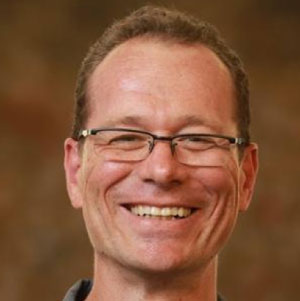
Prof. Hano Maree
Laboratory: Citrus Biotechnology
Email: hjmaree@sun.ac.za
Short Bio
Prof. Hano Maree

Extraordinary Professor, Citrus Research International (seconded staff),Programme Coordinator & Researcher: HLB and Biotechnology, PhD, Pr.Sci.Nat. (Biol. Sci.)
Laboratory: Citrus Biotechnology
Email: hjmaree@sun.ac.za
NRF Rating: B
Short bio
The citrus biotechnology laboratory primarily studies graft transmissible diseases and develops biotechnological tools to combat these diseases. We currently focus in citrus tristeza virus (CTV) and Huanglongbing (HLB). A key element of our work is the application of high-throughput sequencing (HTS) for; the development of both HTS-based and conventional detection assays for diseases, to study host-pathogen interactions, and to develop insect species identification tools. Additionally, we study disease epidemiology and insect vector dynamics, to better our understanding and management of citrus diseases.
Close
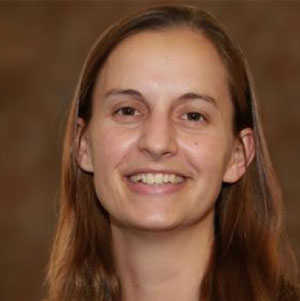
Dr. Rachelle Bester
Laboratory: Citrus Biotechnology
Email: rachelle@sun.ac.za
Short Bio
Dr. Rachelle Bester

Extraordinary Senior Lecturer, Citrus Research International (seconded staff), Biotechnology researcher (CRI); PhD, Pr.Sci.Nat. (Biol. Sci.)
Laboratory: Citrus Biotechnology
Teaching Courses: GEN 711 (MTC)
Email: rachelle@sun.ac.za
Short bio
Dr. Bester is a biotechnologist with over a decade of experience in the development of cutting-edge molecular detection and quantitation assays for disease detection and characterization. Specializing in the study of woody perennials, Dr.Bester leverages bioinformatic data analyses of high-throughput sequencing (HTS) data to uncover the molecular underpinnings of plant diseases. With a particular focus on citrus, Dr. Bester investigates the intricacies of diseases such as citrus tristeza virus (CTV) and Huanglongbing (HLB) and is adept in the development of molecular species identification tools and genome sequencing, which are crucial for studying the host/vector/pathogen dynamics that drive plant disease epidemics. Their work stands at the intersection of biotechnology and bioinformatics, driving innovations in disease management for sustainable agriculture.
Close

Prof Rouvay Roodt-Wilding
Email: roodt@sun.ac.za
Short Bio
Prof Rouvay Roodt-Wilding

Research Environment - Molecular Breeding and Biodiversity Research Group
Email: roodt@sun.ac.za
Short bio
Rouvay Roodt-Wilding obtained her PhD in Genetics in 2003 from the University of the Free State. In 2004, she joined Stellenbosch University where she established the Molecular Breeding and Biodiversity Research Group in the department of Genetics. The highlight of her twenty-year career at Stellenbosch was serving as mentor and advisor to more than 50 Honours, M.Sc. and Ph.D. students.
She is currently utilising her vast academic administrative, management and strategic experience as a Research Program Manager in the Centre for Crop Development at the University of Saskatchewan, Saskatoon, Canada and in her role as Extraordinary Associate Professor in the department of Genetics, is involved in internal moderation ofhonours modules and research projects.
Close
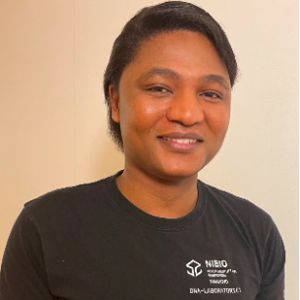
Dr. Simo Njabulo Maduna
Laboratory: Shark and Ray Genetics
Email: simo@sun.ac.za
Short Bio
Dr. Simo Njabulo Maduna

Hons(Biotech), Msc (Genetics), PhD (Genetic Eng)
Research Environment - Animal and Plant Genetics
Laboratory: Shark and Ray Genetics
Teaching Courses: N/A – Research-based, where I serve as a co-supervisor for postgraduate students at the Shark Lab.
Email: simo@sun.ac.za
Short bio
Dr. Simo Maduna is a molecular ecologist with expertise in multidisciplinary research that integrates ecology, genetics, and conservation biology towards biodiversity conservation, genetic/genomics monitoring, and adaptive management of (sustainable) fisheries resources. His research covers a wide variety of topics (aquaculture genomics, genome assembly, landscape/seascape genomics, invasion genomics, molecular phylogenetics, phylogenomics, wildlife forensics, and eDNA-based biodiversity monitoring) and taxa (chondrichthyans, pinnipeds, teleosts, avians and carnivores such as the polar bear and Eurasian lynx). He is currently an ecological genomics and bioinformatics researcher at the Norwegian Institute of Bioeconomy Research's (NIBIO) Department of Ecosystems in the Barents Region of Arctic Norway.
Close
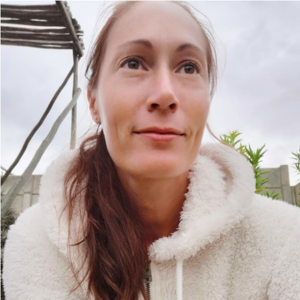
Dr. Bianke Loedolff
Laboratory: IPBB
Email: bianke@sun.ac.za
Short Bio
Dr. Bianke Loedolff

B.Sc. (Molecular Biology and Biotechnology), B.Sc.Hons., MSc., Ph.D (Plant Biotechnology), Founder, CEO (Biosupport (Pty.) Ltd.)
Research Environment - Biotechnology
Laboratory: IPBB
Email: bianke@sun.ac.za
Short bio
Bianke Loedolff obtained a Ph.D in Plant Biotechnology (2015; Stellenbosch University, SU; South Africa) and has since continued her research ventures to bridge disciplines, challenging and crossing boundaries, connecting Biotechnology to the Food Science and Human/Animal Physiology spaces, and has received an extraordinary lecturer position at the Institute for Plant Biotechnology (2023; Department Genetics; SU). At the helm of her of own business, Biosupport (Pty.) Ltd., Bianke provides technical and innovation R&D support structures to assist any enterprise, accelerating their scientific ideas into actionable solutions. Driven by passion, Bianke has undertaken ventures in cultured meat/fat and alternate proteins, enzyme discovery and optimization, natural product development, sustainability, and enhancing technical laboratory proficiency in postgraduate learners within higher education. This dynamic approach reflects her commitment to fostering scientific progress and shaping the future of biotechnological advancements.
Close
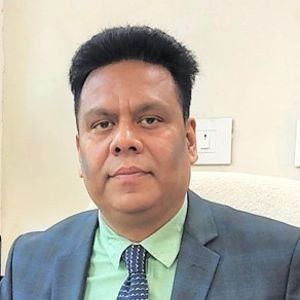
Prof. Sanjib Kumar Panda
Laboratory: IPBB
Short Bio
Prof. Sanjib Kumar Panda

Laboratory: IPBB
Short bio
Prof. Sanjib Kumar Panda, Head, Department of Biochemistry, Central University of Rajasthan is among the top 2% of Scientists in the World from India in the field of Plant Biology in the list published by Stanford University, USA for whole careers in the year 2020 & 2021. He has done his M.Sc. (Gold Medalist), M.Phil. Ph.D. & D.Sc. from Utkal University, Bhubaneswar, Odisha, India and has a long 26 years of illustrious teaching & research career of working in various central Universities which includes eleven years as Professor and worked in various administrative positions as Dean, Head, Chairman, President, Governing body etc.. He has research trainings and Visiting Professorships in notable Institutions in University of California, University of North Carolina, Oklahoma State University, USA, University of Bonn, University of Dusseldorf, Germany, Okayama University, Gifu University, Shizuoka University, RIKEN, Japan, Stellenbosch University, South Africa and Russian Academy of Sciences etc. He has published more than 160 research papers in International & National journals in his areas of expertise including Molecular Biology, Plant Functional Genomics, Genetic Engineering etc. with cumulative impact factors above 300, citations of more than 8040 and H index of 48. He is a fellow of the Royal Society of Biologists, London. He has supervised more than 21 Ph.D. students, and 150 + Master students. He has been the recipient of 19 research projects from DBT, DST, CSIR, UGC and 5 International projects with Japan, South Africa and Russia etc.
Close
SENIOR LECTURERS
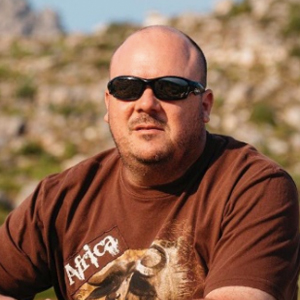
Dr. Paul Hills
Laboratory: Plant Growth Promoting Substances Group, IPBB
Email: phills@sun.ac.za
Short Bio
Dr. Paul Hills

BSc (summa cum laude), BScHonours (cum laude), PhD (University of Natal)
Research Environment - Plant Biotechnology
Laboratory: Plant Growth Promoting Substances Group, IPBB
Teaching Courses: Biology 154; Genetics 315, Genetics 712
Email: phills@sun.ac.za
Short bio
Dr Paul Hills’ research program focusses on the molecular physiology of plant growth, with the goal of identifying novel ways to enhance crop yield and productivity. Most of this research is applied and has an industry-based focus. Dr Hills is particularly interested in the role of plant growth promoting rhizobacteria and biostimulants in boosting plant growth and health, and has a strong interest in micropropagation and tissue culture. His research is interdisciplinary and includes several collaborations across the Stellenbosch campus. Dr Hills has a PhD in Botany from the University of Natal (Pietermaritzburg) and teaches advanced Biotechnology.
Close
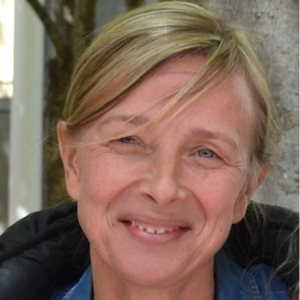
Dr. Barbara van Asch
Laboratory: Insect and Fungi
Email: bva@sun.ac.za
Short Bio
Dr. Barbara van Asch

PhD, University of Porto, Portugal
Research Environment - Molecular Breeding and Biodiversity
Laboratory: Insect and Fungi
Teaching Courses: Gen244
Email: bva@sun.ac.za
Short bio
Dr Barbara van Asch has a passion for African insect biodiversity and their impact on natural ecosystems and human economic and cultural activities. She leads a research team that uses population genetics, phylogenetics and phylogeographic tools for documenting and managing edible insects, agricultural pests and their natural enemies, and invasive species. Dr van Asch has co-authored over 60 publications and currently coordinates and teaches a foundational molecular genetics course.
Close
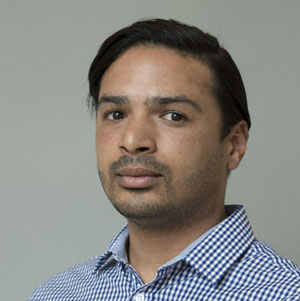
Dr. Nathaniel Wade McGregor
Laboratory: Human and Systems Genetics
Email: nwm@sun.ac.za
Short Bio
Dr. Nathaniel Wade McGregor

B.Sc. (Molecular and Cellular Biology), B.Sc. Hons. (Genetics), M.Sc. (cum laude), Ph.D. (Psychiatry)
Research Environment - Neuropsychiatric and Human Genetics
Laboratory: Human and Systems Genetics
Teaching Courses: Advanced Topics in Molecular Genetics (Neurogenetics & Pharmacogenetics), Programme Coordinator: B.Sc. Honours – Genetics, BSc Honours (Genetics - Human and Animal Genetics)
Email: nwm@sun.ac.za
Short bio
Dr Nathaniel McGregor is a neuropsychiatric geneticist who specializes in elucidating the underlying molecular aetiology and pathophysiology psychiatric disorders (i.e., OCD, Schizophrenia et.), as well as the treatment thereof (i.e., differential antipsychotic treatment response). With a Ph.D. in Psychiatry and a postgraduate course in global neuropsychiatric research from Harvard (Global Initiative for Neuropsychiatric Genetics Education in Research), he’s published authored numerous publications and has graduated a multitude of postgraduate student degrees.
Close
LECTURERS

Dr. Marlon-Schylor le Roux
Laboratory: Cereal Genomics
Email: malonleroux@sun.ac.za
Short Bio
Dr. Marlon-Schylor le Roux

Hons(Biotech), Msc (Genetics), PhD (Genetic Eng)
Research Environment - Genetic Engineering
Laboratory: Cereal Genomics
Teaching Courses: Biology124,Genetics 721
Email: malonleroux@sun.ac.za
Short bio
Dr. Le Roux is an accomplished academic and innovator dedicated to advancing genetic modification through pioneering research and impactful education. He earned his PhD in 2021, receiving multiple prestigious awards, securing a patent, and publishing three peer-reviewed articles, establishing himself as an expert in genetic engineering and plant biotechnology. He leads a multidisciplinary research team comprising a postdoctoral researcher, MSc student, Honours student, and research assistant, with plans for further growth. His work focuses on various genetic tools like CRISPR to enhance crop resilience and sustainability, addressing critical challenges such as climate change. His team also incorporates machine learning and artificial intelligence to drive advancements in plant phenotyping and biotechnology. Beyond research, Dr. Le Roux serves on a government committee under the Genetically Modified Organism Act (Act 15 of 1997) and he is also a dedicated reviewer for multiple esteemed peer-reviewed journals and frequently serves as an examiner for Master’s and PhD research theses and defense presentations
Close

Dr. Brendon Pearce
Laboratory: Complex Disease Genomics
Email: bpearce@sun.ac.za
Short Bio
Dr. Brendon Pearce

PhD (Biotech), DiMAP
Research Environment - Human Genetics
Laboratory: Complex Disease Genomics
Teaching Courses: Gen214, Gen 324, Gen 721
Email: bpearce@sun.ac.za
Short bio
Lecturer in Genetics at Stellenbosch University, specialising in precision medicine and human genetics. After earning a PhD in Biotechnology (Precision Medicine) from the University of the Western Cape in 2017, I have focused on advancing precision medicine to enhance therapeutic strategies and healthcare policies. With over 20 peer-reviewed publications and international conference presentations, my research impacts clinical practice and global health decision-making. Committed to mentoring future scientists, I have successfully supervised students across all academic levels, driving innovation in precision medicine to reshape the future of healthcare.
Close
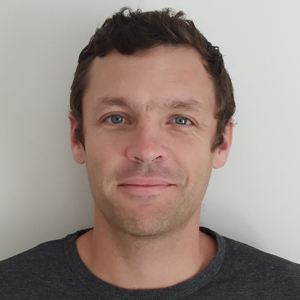
Dr. Justin Lashbrooke
Laboratory: Fruit Functional Genomics
Email: jglash@sun.ac.za
Short Bio
Dr. Justin Lashbrooke

PhD
Research Environment - Plant Breeding Laboratory
Laboratory: Fruit Functional Genomics
NRF Rating: Y1
Email: jglash@sun.ac.za
Short bio
Within the Plant Breeding Lab Dr Lashbrooke’s research focuses primarily on grapevine genetics, genomics, metabolomics and breeding. He has a particular interest in secondary metabolism and plant-environment interactions, and pre-breeding grapevine for disease resistance and quality traits. Dr Lashbrooke was granted a joint PhD from Stellenbosch University and Fondazione Edmund Mach, Italy, in 2015, before a taking up a postdoctoral researcher position at ARC Infruitec-Nietvoorbij. His current position is that of lecturer at the Department of Genetics, where he is in charge of the grapevine molecular breeding platform.
Close
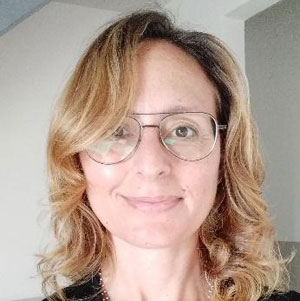
Dr. Manuela Campa
Laboratory: Vitis
Email: mcampa@sun.ac.za
Short Bio
Dr. Manuela Campa

PhD in Biotechnology (University of Insubria, Italy)
Research Environment - Plant molecular biology, plant biotechnology
Laboratory: Vitis
Teaching Courses: Molecular Genetics (Gen 344)
Email: mcampa@sun.ac.za
Short bio
Dr. Manuela Campa is a Lecturer in the Genetics Department at Stellenbosch University and has a background in plant biotechnology. She received her education in Italy and gained experience in various international labs before joining the Vitis lab in 2014. Her current focus is on the use of genome editing to enhance grapevine tolerance to biotic and abiotic stresses. In addition to her work on grapevines, Dr. Campa also has experience with other crops, such as wheat, tomato and apple and model plants like N. benthamiana and Arabidopsis. She supervises post-graduate students and collaborates with international institutions. As a lecturer, Dr. Campa teaches molecular genetics at the undergraduate level. Her expertise in plant biotechnology and genome editing is likely to inform her teaching and provide students with a unique perspective on the subject.
Close
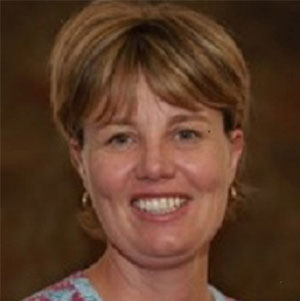
Dr. Christell van der Vyver
Laboratory: IPBB
Email: cvdv@sun.ac.za
Short Bio
Dr. Christell van der Vyver

PhD
Research Environment: Institute for Plant Biotechnology
Laboratory: IPBB
Teaching Courses: Gen245, Biol154, Gen790
Email: cvdv@sun.ac.za
Short bio
Dr. Christell van der Vyver is a plant biotechnologist that specialises in the development and use of in vitro plant regeneration and transformation systems. She focus on the genetically manipulation of plants to increase abiotic stress tolerance and understand carbohydrate metabolism in plants, especially for the sugarcane industry for improving cultivars and testing gene function. Her research team also explore the potential of mutation breeding to generate useful phenotypes in crop species for especially abiotic stress tolerance.
Close
JUNIOR LECTURERS

Ms. Mandi Engelbrecht
Email: mengelbr@sun.ac.za
Short Bio
Ms. Mandi Engelbrecht

M.Sc. (Genet.) PG Dip. (Proj. Manag.)
Research Environment - Practical Coordinator for Gen 214/244 and Gen 778 (Hons)
Teaching Courses: Gen 214, Gen 244, Gen 778 (Hons)
Email: mengelbr@sun.ac.za
Short bio
Miss Mandi Engelbrecht holds a Master of Science in Genetics degree from Stellenbosch University. She has more than 15 years’ experience as a technical officer and laboratory manager within the Department of Genetics, and also managed Vironostix, an entrepreneurial extension of one the Department’s research groups offering virus diagnostic services for commercial crop and ornamental plant producers, using the latest Real-Time-PCR assays and technologies. Ms Engelbrecht was promoted to Junior Lecturer in 2020, due to her vast expertise in molecular biology laboratory protocols and techniques. She has lectured foundational cell and molecular biology and advanced molecular techniques at Hons-level.
Close
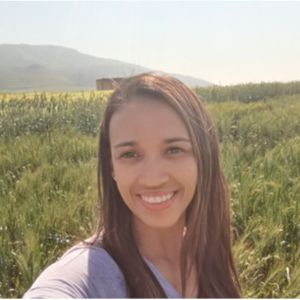
Mrs. Lezaan Hess
Laboratory: Plant Breeding
Email: lspring@sun.ac.za
Short Bio
Mrs. Lezaan Hess

MSc Genetics
Research Environment - Plant Genetics
Laboratory: Plant Breeding
Teaching Courses: Genetics 414 ; Crop Protection 152
Email: lspring@sun.ac.za
Short bio
Mrs Lezaan Hess is a Junior Lecturer in the Department of Genetics at Stellenbosch University. She is also a passionate plant breeder and research team member at the Plant Breeding Laboratory. Her research focuses on the genetic improvement of biotic and abiotic stress resistance in wheat. She is involved in the National Wheat Breeding Platform where she conducts the wheat pre-breeding programme. Through her research efforts in plant breeding, she has contributed towards the distribution of genetically improved wheat nurseries to public and private breeding companies, to ultimately assist South African farmers to increase their wheat yields and profitability.
Close

Mr. Michael Wolf
Email: mwolf@sun.ac.za
Short Bio
Mr. Michael Wolf

B.Sc., Hons, M.Sc. Molecular and Cell Biology
Teaching Courses: Genetics 214, Genetics 324, Genetics 354, Genetics 711
Email: mwolf@sun.ac.za
Short bio
Mr Wolf earned his Master of Science in Molecular and Cell Biology from the University of Cape Town. He joined Stellenbosch University's Department of Genetics in 2019 as a technical officer in the Molecular Breeding and Biodiversity group. In 2022, he became a Junior Lecturer involved with co-lecturing Gen 214, coordinating third-year genetics practicals and advanced molecular techniques at the Honours level. His research interests include molecular and population genetics, with a focus on its intersections with ecology and conservation, and more recently the scholarship of teaching and learning in genetics
Close
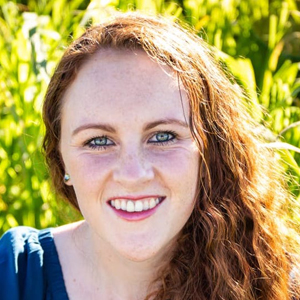
Ms. Cecile Bester
Laboratory: Plant Breeding
Email: cecilebester@sun.ac.za
Short Bio
Ms. Cecile Bester

MScAgric, BScAgric
Research Environment - Plant Breeding
Laboratory: Plant Breeding
Teaching Courses: Biometry 212, Biometry 242, Biometry 311, Biometry 821
Email: cecilebester@sun.ac.za
Short bio
Ms. Bester is a wheat breeder with an interest in plant phenomics. Her research focuses on the use of digital phenotyping, machine learning, and diversity analysis of common bread wheat and wheat crop wild relatives. This work forms part of the greater Stellenbosch University Plant Breeding Laboratory, a research group focused on pre-breeding and crop improvement of small cereal grains.
Close
TECHNICAL OFFICERS

Ms. Sonalia Hirday
Laboratory: Vitis
Email: shirday@sun.ac.za
Short Bio
Mr. Sinjon Heitmann

Ms. Sonalia Hirday
Laboratory: Vitis
Email: shirday@sun.ac.za
Short bio
Ms Hirday has received a BSc Biochemistry and Genetics (Hons) degree from University of KwaZulu-Natal. She has interned at various institutes throughout South Africa such as HSRC, SAMRC and CSIR assisting in cancer, Covid-19 and fungal research. She joined Stellenbosch University in 2024 as a technical officer in the Vitis Lab, where she performs laboratory manager duties, helps facilitate undergraduate Genetics modules and assists in post graduate research that include molecular and tissue culture experiments.
Close

Mr. Sihle Mthethwa
Laboratory:
Email: sihlemthethwa@sun.ac.za
Short Bio
Mr. Sihle Mthethwa

Laboratory: Insect, Molecular Breeding and Biodiversity
Email: sihlemthethwa@sun.ac.za
Short bio
is a technical officer in Stellenbosch University's Genetics Department, overseeing the Human Genetics and Sharks & Rays laboratories. His research focuses on molecular population and evolutionary genetics of marine organisms, using advanced genomic tools like molecular markers and next-generation sequencing to study the genetics and global phylogeography of South Africa's wild marine populations.
Close

Mr. Sinjon Heitmann
Laboratory: Animal Production and Improvement, Insect and Fungi
Email: sinjon@sun.ac.za
Short Bio
Mr. Sinjon Heitmann

Laboratory: Animal Production and Improvement, Insect and Fungi
Email: sinjon@sun.ac.za
Short bio
Sinjon Heitmann earned his Master of Science in Biochemistry from Stellenbosch University, with an additional qualification in education. He joined Stellenbosch University’s Department of Genetics in 2022 as a technical officer for the Insect Group and the Molecular Breeding and Biodiversity group.
Close

Ms Casey Gill
Laboratory: Citrus Biotechnology
Email: caseygill@sun.ac.za
Short Bio
Ms Casey Gill

MSc
Laboratory: Citrus Biotechnology
Email: caseygill@sun.ac.za
Short bio
Casey has a keen interest in climate change and its influence on the spread of insect-vectored diseases affecting economically important crops. She explored this intersection during her MSc at the University of Pretoria, as part of the Avocado Research Programme at the Forestry and Agricultural Biotechnology Institute. Her dissertation focused on using high-throughput sequencing to characterize fungal communities associated with invasive insects on avocado, particularly where plant pathogens were concerned. At the CBL, she conducts diagnostic assays for a multitude of projects with a primary focus on African Greening. In addition to her research duties, she oversees the daily operations of the laboratory, trains postgraduate students, and maintains experimental plant material.
Close

Kristen Fulton
Laboratory: IPBB
Email: kristen@sun.ac.za
Short Bio
Kristen Fulton

Laboratory: IPBB
Email: kristen@sun.ac.za
Short bio
Assistant technical officer at the Institute for Plant Biotechnology (IPB). I completed my MSc in Plant Biotechnology at the IPB at Stellenbosch University in 2023 under the supervision of Dr Christell van der Vyver. My research focused on improving drought tolerance in sugarcane plants through the genetic modification of genes involved in photosynthesis.
Close
ADMINISTRATIVE STAFF
Close









